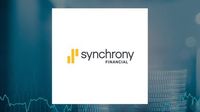Synchrony Financial (NYSE:SYF) is making headlines as it attracts significant investment interest from various institutional investors, reflecting a growing confidence in its market position despite recent fluctuations in its stock price. According to a recent disclosure with the Securities and Exchange Commission, Fox Run Management L.L.C. acquired 6,921 shares of Synchrony Financial during the fourth quarter, valued at approximately $450,000. This move is part of a broader trend, as several other large investors also adjusted their stakes in the company.
Bogart Wealth LLC, for instance, acquired a new position in Synchrony Financial worth $26,000, while TCTC Holdings LLC purchased shares valued at about $27,000. Y.D. More Investments Ltd increased its position in Synchrony Financial by a staggering 111.5%, now owning 480 shares worth $31,000 after purchasing an additional 253 shares during the last quarter. Similarly, Larson Financial Group LLC lifted its holdings by 92.7% in the third quarter, now owning 607 shares valued at $30,000 after buying an additional 292 shares. Finally, Raleigh Capital Management Inc. grew its stake in Synchrony Financial by 151.4% in the fourth quarter, now owning 807 shares valued at $52,000 after buying an additional 486 shares.
Notably, institutional investors and hedge funds own a whopping 96.48% of Synchrony Financial's stock, indicating a strong institutional backing that could provide stability amid market volatility.
In terms of market performance, Synchrony Financial's shares traded down $0.78 on Thursday, March 27, 2025, reaching $54.42. The stock had a trading volume of 1,627,372 shares, compared to its average volume of 3,629,035. Synchrony Financial has experienced a twelve-month low of $39.67 and a high of $70.93, showcasing the stock's volatility over the past year.
Financial analysts have been busy adjusting their price targets for Synchrony Financial, reflecting a mix of optimism and caution. Truist Financial recently reduced their target price on shares from $77.00 to $65.00, setting a "hold" rating for the company in a research note dated March 21, 2025. Conversely, Barclays upgraded Synchrony Financial from an "equal weight" rating to an "overweight" rating, raising their price objective from $59.00 to $79.00 on January 6, 2025.
Bank of America has also shown confidence in Synchrony Financial, boosting their price target from $82.00 to $85.00 on January 28, 2025. Royal Bank of Canada increased their price objective from $70.00 to $73.00 on January 29, 2025. Keefe, Bruyette & Woods, on the other hand, boosted their target price from $62.00 to $82.00 on December 9, 2024.
Overall, the consensus rating for Synchrony Financial stands at "Moderate Buy," with an average target price of $68.10. This suggests that while there are concerns about the stock's near-term performance, many analysts believe in the company's long-term prospects.
In its latest quarterly earnings report released on January 28, 2025, Synchrony Financial reported earnings per share (EPS) of $1.91, surpassing analysts' consensus estimates of $1.89 by $0.02. The company recorded a net margin of 15.36% and a return on equity of 18.30%, indicating solid financial health.
Adding to the positive sentiment, Synchrony Financial recently announced a quarterly dividend of $0.25 per share, which was paid on February 18, 2025, to shareholders of record as of February 3, 2025. This represents a $1.00 annualized dividend and a yield of 1.84%. The company’s dividend payout ratio is currently at 11.71%, suggesting a balanced approach to returning value to shareholders while maintaining sufficient capital for growth.
However, the company is not without its challenges. Recent reports indicate that consumer confidence in the U.S. has plunged to a 12-year low, as Synchrony Financial has warned about potential impacts on spending. This has led to increased scrutiny of the company's future performance in a potentially tightening economic environment.
Moreover, unusual activity in options trading has been noted, with Synchrony among the total active option classes on the open market, alongside other notable companies such as Peloton Interactive (PTON) and GameStop (GME). This heightened interest in options could signal traders' expectations for volatility or significant movements in the stock price in the near future.
As Synchrony Financial navigates these complexities, the company remains a focal point for investors looking to capitalize on its potential. With robust institutional backing and a strong financial performance, it will be interesting to see how Synchrony adapts to the evolving economic landscape and what strategies it employs to maintain its competitive edge.
In conclusion, Synchrony Financial stands at a crucial juncture, balancing investor confidence with market challenges. As analysts continue to adjust their ratings and price targets, the company's ability to respond to economic shifts will be pivotal in determining its future trajectory in the financial services sector.





